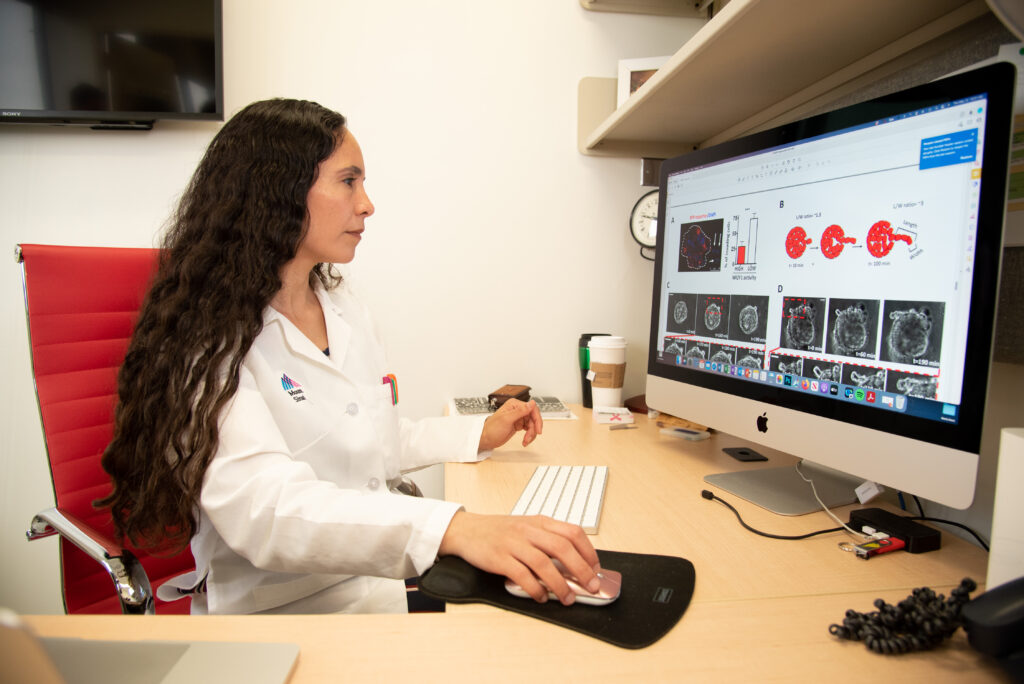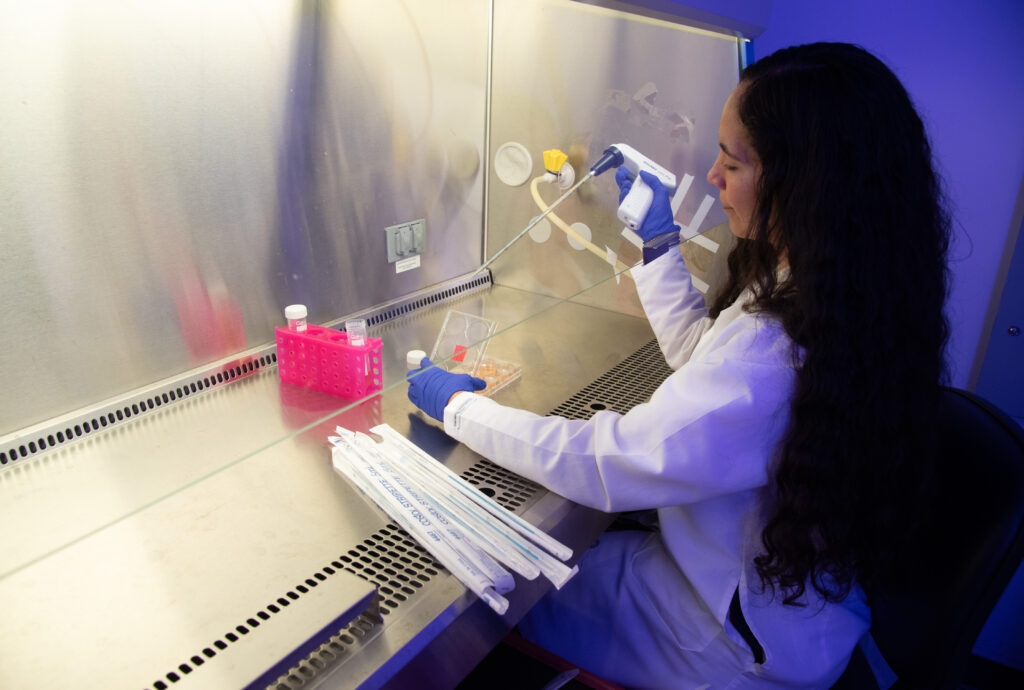Maria Soledad Sosa, PhD ‹ Back To 2022 Winners
2022 Winners
Assistant Professor
Pharmacological Sciences
Icahn School of Medicine at Mount Sinai
Vision
Current cancer therapies often fail to treat life-threatening metastasis. My lab explores the frontiers of metastasis biology to find actionable biomarkers and targets to stop lethal metastasis. Disseminated cancer cells (DCCs) are the seeds of metastasis and can originate from very early lesions in various cancers (e.g. breast, lung, colon, melanoma, pancreatic). This means that at the moment of diagnosis, patients with a primary tumor are highly likely to carry early DCCs co-existing at distant sites with later arriving DCC, from genetically evolved tumors. We have also shown that all evolutionarily distinct types of DCCs remain dormant but eventually, they reactivate and form metastasis. During the dormancy phase, DCCs are able to survive systemic therapies and they evade the immune system.
We propose that the interactions between early and late DCCs and their immune niche are key to unravel the mechanisms of reactivation and thus, they become a unique opportunity for the design of targeted therapy to prevent metastasis formation. We also propose to utilize protein barcode system (Pro-Codes) coupled with multiplex imaging approaches to allow for spatial resolution of hundreds of barcoded DCCs and visualization of their interactions and with innate immune cell microenvironments, while they are dormant and once, they have initiated metastasis.By defining the clonal interactions between distinct types of DCCs and their immune niche, we will be able to identify novel pathways that can be pharmacologically targeted to stop life-threatening metastasis.
Maria Soledad Sosa, PhD did her career in Molecular Biology at the University of San Luis, Argentina and her undergraduate training at Leloir Institute in Argentina under the supervision of Drs. Llera and Podhajcer, where she studied the secretome of melanoma cells. In 2005, Dr. Sosa started her Ph.D. training in Dr. Marcelo Kazanietz’s laboratory at the University of Pennsylvania, Philadelphia (UPENN). During her training, she focused on the mechanisms of action of Rac-GEFs and -GAPs during proliferation and invasion of breast cancer cells. In 2010, Dr. Sosa joined Dr. Aguirre-Ghiso’s lab as a postdoctoral fellow at Mount Sinai Hospital, New York. Since then, Dr. Sosa has focused on the study of minimal residual disease in an attempt to understand the mechanistic pathways in disseminated cancer cells (DCCs). In 2017, Dr. Sosa started an Assistant Professor appointment in the Department of Pharmacological Sciences at Mount Sinai Hospital. Dr. Sosa has published more than 25 articles and has secured several grants including: Schneider-Lesser Foundation Fellow Award, CSBC Pilot Project-Sage Bionetworks, Melanoma Research Alliance Team Science Award (Co-PI), NCI-K22, CCR Basic/Translational and Clinical Susan Komen, Melanoma Research Foundation, Breast Cancer Foundation, and The Mark Foundation (Co-PI) grants. Her lab research focuses on providing new biomarkers and treatments derived from the novel biology of dormant disease to manage minimal residual disease and prevent metastasis.
Crosstalk and Immune Education by Evolutionarily Distinct Disseminated Cancer Cells During the Invisible Phase of Metastasis
 Current cancer therapies often fail to treat life-threatening metastasis. We believe that by targeting the seeds of metastasis we can prevent metastasis formation. Our investigation provides evidence that the seeds of metastasis are cancer cells that have left the invasive primary tumor and arrived at distant organs (e.g. lungs, bones). We have also shown that these disseminated cancer cells (DCCs) remain in a non-proliferative state (named dormancy) for extended time periods. During this dormancy phase DCCs are able to survive systemic therapies.
Current cancer therapies often fail to treat life-threatening metastasis. We believe that by targeting the seeds of metastasis we can prevent metastasis formation. Our investigation provides evidence that the seeds of metastasis are cancer cells that have left the invasive primary tumor and arrived at distant organs (e.g. lungs, bones). We have also shown that these disseminated cancer cells (DCCs) remain in a non-proliferative state (named dormancy) for extended time periods. During this dormancy phase DCCs are able to survive systemic therapies.
“The Pershing Square Sohn Prize will allow my team to uncover the biology of metastatic founders and their interplay with the immune system, providing us with tools that in the future could become successful treatments to prevent metastasis formation.”
To add more complexity to the biology of DCCs we recently published that DCCs could also disseminate from early pre-malignant cancer cell lesions (e.g. ductal carcinoma in situ) and as early DCCs (eDCCs), protractedly initiate metastasis. We also documented that DCCs coming from invasive primary tumors, termed late DCCs, (LDCCs) populate target organs. Thus, when a tumor is clinically detected, patients may have already both populations of DCCs. Therefore, if we understand how each subpopulation of DCCs (early and late) contribute, alone or together, to the metastasis formation we might have a chance to stop these DCCs from initiating life-threatening metastasis.
Our preliminary data indicate that dormant eDCCs require LDCCs in order to grow. Moreover, dormant eDCCs alone repel macrophages, whereas cooperating eDCC and LDCC now recruit macrophages that favor metastasis formation. We propose that if we block the communication between eDCCs and LDCCs and/or target the immune cell recruitment by this unique DCC cooperation we may find new ways to stop metastasis initiation and extend survival rates.
“To innovate in science, you need to be fearless enough to ask and test radical ideas, conceptually and technologically, and transform them into practical solutions. You also need to be resilient, as failures will be inevitable.”
